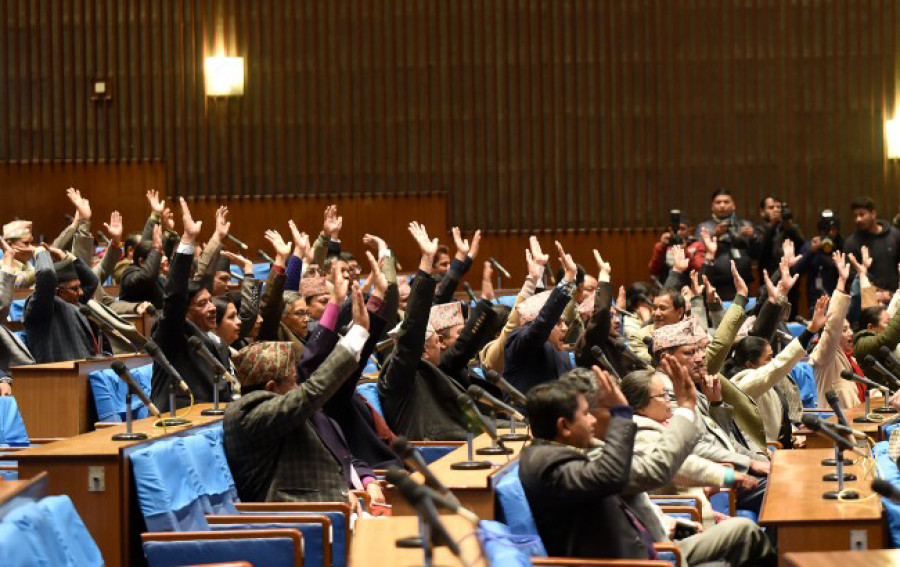National
Local and provincial governments have been allowed to draft laws fixing jail terms and fine in civil offences
Authorities must ensure that such laws do not contradict federal laws and they should not be misused, experts say.
Binod Ghimire
Cross-party lawmakers have agreed to allow the provincial and local governments to formulate laws to fix jail terms and monetary fines in civil offences. Legal experts say while there is nothing unconstitutional in letting provincial and local governments introduce laws with jail terms and fines in civil offences, there must be an assurance that they don’t contradict the federal laws.
Revisiting the original bill registered by the government, the Legislature Management Committee under the National Assembly agreed to authorise the two tiers of government to formulae the laws fixing the penalties.
The Bill on Management of the Inter-relations Between the Local, Provincial and Federal Levels prepared by the Prime Minister’s Office didn’t have such provisions, for it could create disputes with the federal government.
Anita Devkota, a member of the committee from Nepali Congress, said lawmakers agreed to allow the provincial and local governments to formulate the laws on the condition that such laws don’t contradict federal laws.
“The jurisdiction is limited to civil offences only. Such laws are not for criminal cases,” Devkota told the Post.
The committee finalised the bill, which was registered in the Parliament on April 21 last year, after months-long deliberations.
According to Bipin Adhikari, a former dean at Kathmandu University School of Law, the challenge for the two tiers of government will be to ensure that the laws they formulate do not contradict the federal laws, as envisioned by the constitution.
“The constitution allows the lower tiers of government to draft and implement the laws that can fix jail terms and fines in civil offences,” Adhikari told the Post. “However, the implementation part could be tricky.”
Adhikari’s concerns stem from the fact that “the state apparatuses are gradually being heavily politicised.”
“In such a scenario, the possibility of misuse of laws cannot be ruled out,” said Adhikari. “If the federal parliament agrees to delegate the authority to lower tiers of the government to formulate these laws, it also must ensure accountability while executing them.”
Under the prevailing system, quasi-judicial bodies which function under the respective governments, too, have the authority to fix penalties in civil offences.
Devkota, the Congress lawmaker, said such penalties, however, can be challenged in respective district courts, whose decision will be final.
The Bill on Management of the Inter-relations Between the Local, Provincial and Federal Levels now needs to be endorsed by the federal parliament for it become a law.




 14.12°C Kathmandu
14.12°C Kathmandu














